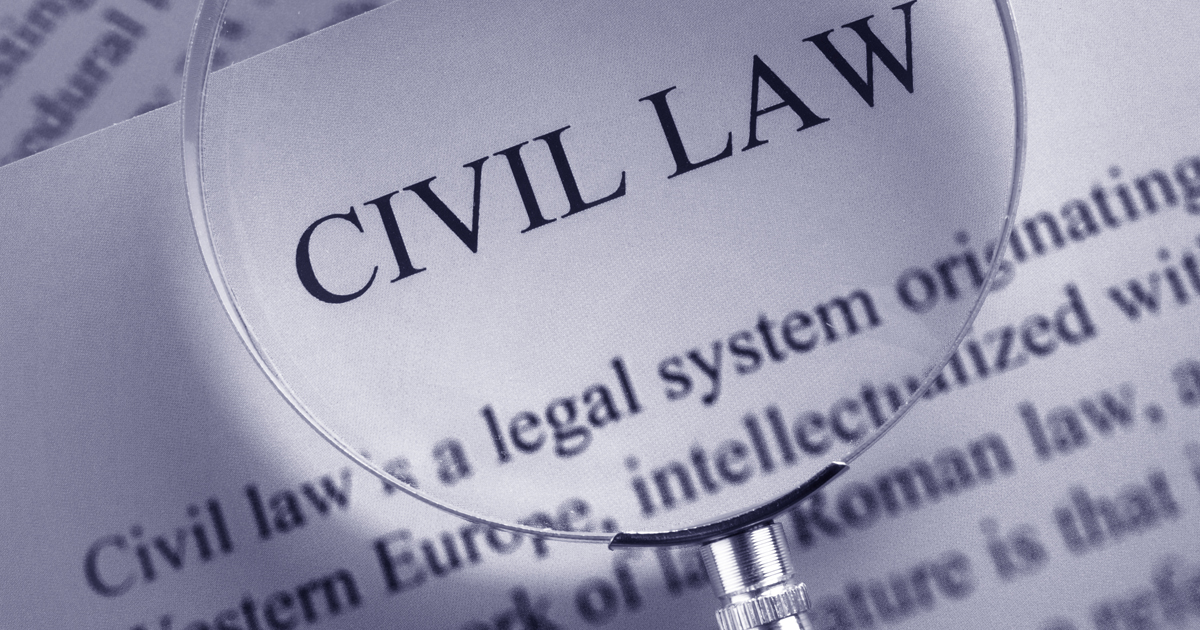Civil Litigation
Home Areas of Practice
Civil Disputes
Civil Litigation Lawyers
At GJC Law, our Civil Litigation and Commercial Dispute Resolution Department is led by Chong Xin Yi (Liesel), who brings 11 years of experience handling a broad range of disputes. She takes pride in delivering high-quality work and achieving positive and highly satisfactory client results.
Our civil dispute lawyers assist clients in commencing court actions (litigation) or exploring alternative dispute resolution methods such as mediation. We are committed to providing good value by tailoring our advice to the complexity and scale of each case.
With extensive knowledge in civil law matters, we offer reliable and strategic representation in court, ensuring that your interests are well-protected.
Our work includes:- Civil & Commercial Litigation
- Alternative dispute resolution – Arbitration and Mediation
- Contractual disputes and breach of contract
- Shareholder and partnership disputes
- Company disputes
- Breach of directors’ duties and fiduciary claims
- Conspiracy claims
- Bankruptcy
- Insolvency & restructuring
- Defamation
- Negligence
- Intellectual property
- Civil and commercial disputes
- Employment disputes
- Landlord & tenant disputes
- MCST and condominium disputes
- Commercial agreements
If you require legal guidance in any of these areas, contact our civil dispute lawyers for clear, strategic, and results-driven representation.
Commencing A Civil Claim
Generally, a letter of demand would first be issued before civil proceedings are initiated.
Parties have the duty to consider an amicable resolution of their dispute before the commencement and during the course of any action or appeal.
They would also have to make an offer of amicable resolution (previously known as the “offer to settle”) before a civil suit is commenced unless there are reasonable grounds not to do so.
If parties are unable to resolve their dispute amicably, civil proceedings can be initiated by filing an:
- Originating Claim (formerly known as a Writ of Summons) or;
- Originating Application (formerly known as an Originating Summons).
Whether the civil action should be commenced by way of an Originating Claim or Originating Application would depend on the nature of the case.
The party commencing the civil claim is known as the “claimant” (previously known as the “plaintiff”). The party defending the claim is still known as the “defendant”.
Commencing an Action by an Originating Claim (formerly known as Writ of Summons)
A claim must be commenced by way of an Originating Claim if material facts of the matter are in dispute.
The Originating Claim should be supported by a document known as the “Statement of Claim”. The Statement of Claim sets out the material facts which constitute the cause of action.
Most civil actions relating to contract and tort are commenced by an Originating Claim in Singapore. Common claims that are commenced by way of an Originating Claim are:
- Allegations of fraud, duress, or misrepresentation.
- Negligence claims or cases where the damages claimed involve death, personal injury, or property damage.
- Employment disputes such as wrongful dismissal.
- Landlord and tenant disputes.
- Claims in respect of patent or trademark infringement.
The Originating Claim and Statement of Claim must thereafter be personally served onto the defendant within 14 days of its issuance (if service is to be effected onto the defendant in Singapore).
If the defendant does not reside or is not based in Singapore, personal service would have to be effected outside of the jurisdiction – this has to be done within 28 days of the issuance of the Originating Claim and Statement of Claim.
Note that permission from the court is required before the court documents can be served onto the defendant outside of the jurisdiction – a separate application would have to be made to the court.
The Originating Claim is valid for service for 3 months from the date it is issued.
Commencing an Action by an Originating Application (formerly known as Originating Summons)
A claim must be commenced by way of an Originating Application if:
- It is required by any written law;
- The proceedings concern an application to be made to the court under any written law; or
- There is unlikely to be any substantial dispute of facts and the dispute concerns the construction or interpretation of a written document or statutory provision.
The Originating Application must be supported by an affidavit that contains the grounds or evidence that is necessary or material to the claim. It must also include the reliefs or remedies sought in the proceedings.
Common actions that are commenced by way of an Originating Application:
- Applications to wind up or liquidate a company
- Applications under the Mental Capacity Act
- Applications under the Guardianship of Infants Act
Similar to the Originating Claim, the Originating Application must be personally served on the defendant within 14 days of its issuance (if the defendant is served in Singapore) or 28 days (if the defendant is served outside of Singapore).
The Originating Application is valid for service for 3 months from the date it is issued.
Defending A Civil Claim
Defending an Action by an Originating Claim (formerly known as Writ of Summons)
The defendant has to file a document called the Notice of Intention to Contest or Not to Contest after the Originating Claim (with Statement of Claim) has been personally served onto him. This step is similar to what was previously known as “entering into appearance” or filing the Memorandum of Appearance.
- If the Originating Claim was served onto the defendant in Singapore, the Notice of Intention to Contest or Not Contest would have to be filed within 14 days of service of the Statement of Claim.
- After the Notice of Intention to Contest is filed, the defendant must file and serve the Defence within 21 days after the Statement of Claim was served onto him.
- If the Originating Claim was served onto the defendant outside of jurisdiction /not in Singapore the Notice of Intention to Contest or Not to Contest would have to be filed within 21 days of service of the Statement of Claim.
- After the Notice of Intention to Contest is filed, the defendant must file and serve the Defence within 5 weeks of service of the Statement of Claim.
- If the defendant does not wish to contest the claim, he would have to file the Notice of Intention to Not Contest the claim.
If the defendant fails to file the Notice within the prescribed timelines or indicates that he does not intend to contest all or some of the claims, the claimant can then proceed to apply for judgment for the failure to file a Notice of Intention to Contest or Not Contest (formerly known as a “judgment in default of appearance”).
Similarly, if the defendant fails to file and serve a Defence within the prescribed timelines, the claimant may apply for judgment in default of Defence.
Defending an Action by an Originating Application (formerly known as Originating Summons)
If the defendant intends to introduce evidence in an Originating Application, he must file and serve an affidavit stating so.
- If the Originating Application was served onto the defendant in Singapore, the affidavit would have to be filed within 21 days of personal service of the Originating Application.
- If the Originating Application was served onto the defendant outside of Singapore, the affidavit would have to be filed within 5 weeks of personal service of the Originating Application.
If the defendant fails to file the affidavit within the prescribed timelines, the court will proceed on the basis that the defendant does not wish to introduce evidence and will hear the Originating Application based on the claimant’s affidavit and parties’ legal submissions.
Generally, no further affidavits may be filed after the defendant’s affidavit has been filed.
Five Ideals Governing The Civil Litigation Process
The Rules of Court (which are the set of rules and procedures governing the civil litigation process in Singapore) was substantially revised in 2021.
The 2021 amendments to the Rules of Court introduced five ideals that the court must seek to achieve when making orders or giving directions:
- Fair access to justice
- Expeditious proceedings
- cost-effective work proportionate to —
- the nature and importance of the action;
- the complexity of the claim as well as the difficulty or novelty of the issues and questions it raises; and
- the amount or value of the claim;
- efficient use of court resources; and
- fair and practical results suited to the needs of the parties.
Closely related to the five ideals are the newly legislated duty for parties to consider an amicable resolution of their dispute and make an offer of amicable resolution before commencing any proceedings in court.
The court also has the power to order parties to attempt to resolve the dispute by amicable resolution.
Mediation
Mediation is a cost-effective and efficient means of resolving disputes which allows both parties to avoid having to go to court. This means that the dispute can be resolved more quickly, and both parties can save on their legal costs.
The proceedings may at any time be resolved through settlement or mediation, which is often highly encouraged to save the parties the expense, difficulty, and inconvenience of going to trial.
When you settle a dispute through mediation, any agreement reached is legally binding and enforceable. Mediation is also confidential, which can be a useful feature when it comes to business disputes.
Our Litigation Lawyers Can Help You
Regardless of the kind of civil dispute you are involved in, be it a contract dispute, tort, or any other matter of civil law, our team can assist you in resolving your dispute through mediation. Our lawyers are highly equipped with mediating skills and can assist you in bringing your dispute to an amicable resolution.
If you require more information, advice, assistance, or representation regarding a civil dispute, do not hesitate to contact our team today. Acting quickly is essential as civil actions in Singapore, once commenced, are subject to strict timelines.
Get in touch with us today to find out what we can do for you.



